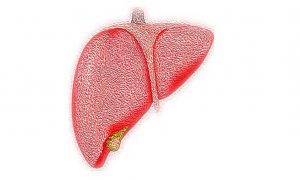In current times, fatty liver diseases have become more common than ever. If left untreated, it can disrupt the functioning of entire body.
Read More:- Can gut bacteria impact your heart? Tips to maintain healthy gut for optimum heart health
Liver is one of the most important parts of the human body. It helps you digest food, convert it to energy and store that energy for future use. It also plays an important role in filtering toxic substances out of the blood. In current times, liver diseases have become more common than ever especially, fatty liver diseases.
If left untreated, fatty liver diseases can lead to permanent liver damage. Fatty liver occurs when the body creates excessive fat or cannot quickly metabolise fat. Some of the common causes can be:
Read More: Don’t sweat the sweating: Surprising health benefits of sweating in summer
Causes of Fatty Liver
- Alcoholism
- Gender: women are more prone to fatty liver than men, because of the difference in working of liver
- Family history
- Pregnancy
- Obesity and over weight
- High blood cholesterol levels
- Diabetes
- Hepatitis C infection
Therefore, paying attention to the early signs and symptoms of a fatty live is important.
Read More: Heatwave and heart attack: What’s the connection? How to beat extreme heat and manage heart health
Signs And Symptoms of Fatty Liver Diseases
- Fatigue: Persistent fatigue or feeling unusually tired, even after getting rest, can be a sign of liver dysfunction. As fat accumulates in the liver, it can affect its ability to function properly, leading to feelings of fatigue and weakness.
- Weight Gain: Unexpected weight gain, particularly around the abdomen, is common in individuals with fatty liver disease. The excess fat stored in the liver can lead to insulin resistance, which affects the body’s ability to regulate blood sugar and can lead to weight gain, especially in the abdominal area.
- Jaundice: Jaundice is the yellowing of the skin and eyes caused by elevated levels of bilirubin in the blood. While jaundice is most commonly associated with other liver conditions, such as hepatitis or cirrhosis, it can also occur in individuals with advanced fatty liver disease.
- Repeated episodes of Vomiting: Frequent rounds of vomiting, especially without an apparent and known cause, could be a sign of liver dysfunction, although they may also indicate other conditions besides fatty liver disease.
- Loss of Appetite: Some people with fatty liver disease may experience a loss of appetite or a general feeling of nausea. This can be due to inflammation in the liver or a buildup of toxins that affect digestion.
If you have any signs or symptoms of liver disease, make sure you head immediately to your doctor and get yourself tested. Delaying the treatment can only complicates the condition further.





































